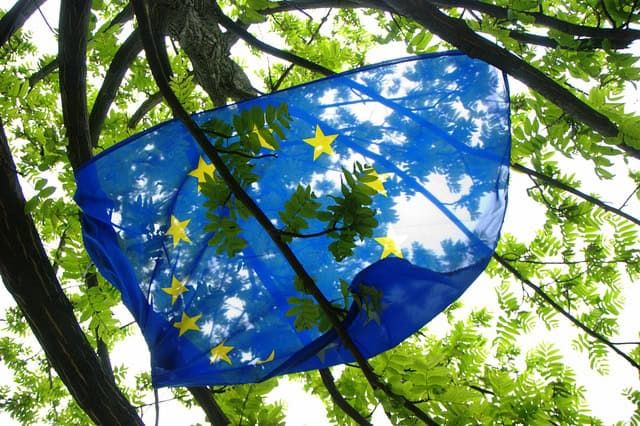
Yes, Europe has a demos!

Ahead of an event The Future of the EU to be held in Europe House in London on the 3rd of June 2013, the Independent published an opinion piece by Martin Callanan MEP MEP, Leader European Conservatives & Reformists (ECR) and one by Guy Verhofstadt MEP Leader Alliance of Liberals and Democrats in Europe (ALDE),
They form part of the panel, where also Emma Reynolds MP, Shadow Europe Minister (Labour), Professor Simon Hix, Head, Dept of Government, LSE, Founder of Votewatch.eu and Professor Anand Menon, European Politics, King’s College London
Martin Callanan focused on technicalities (not really in his interest to give credibility to the EU institutions even if he is a part) and return of powers to nation states. Guy Verhofstadt tried to focus on the challenges ahead for the European Union and makes the case for why the UK ought to stay in the EU.
Mainly I disagree with Callanan’s dual claim: “The EU does not have a demos, and so it can never truly have democracy.”
This European democracy already exists, and it is a representative democracy, which may be flawed but it is democratic. More democratic or at least just democratic as the UK’s House of Lords and perhaps more representative than the UK’s first-past-the-post electoral system with an ever decreasing turn-out, which the two main parties in the UK do not seem motivated to change.
There is a pan-European demos. Some of it may exist inside EU-interested bubbles in member states and in Bruxelles. But it does not mean it does not exist. We need to pierce those bubbles and make politics relevant.
I discuss EU politics with a crowd of people all over Europe. Political subjects are discussed without regard to national boundaries. Austerity and economic policy of the Eurozone, and lately events in Istanbul are debated regardless of national boundaries.
Callahan criticises the efforts by people like Andrew Duff to bolster European parties and participation in European Parliament elections. But for the wrong reasons. What Callahan should have criticized is the focus on technicalities.
I would also criticize the’ underlying complaint that MEPs are not given as much attention as they “ought to” be given. If you want attention. Say something interesting. If you want people to vote give them something to vote for, don’t ask “member states to mount campaigns to encourage citizens to turn out and vote.”
EU political debate must focus on politics not on institutions, treaties, trans-national lists. They may be important but will not get the votes of Europe interested. When the politics gets back into the EU debate I am certain the European demos will respond.
Necessary to pierce the EU-bubbles across Europe. Necessary to show the EU matters. Necessary to show the European Parliament has real powers like never before. Necessary to show it matters that people vote for their MEPs at European Parliament Elections held 22-25 of May 2014.
All of this may be a mission impossible in these days of post-democracy. (If interested in the concept of post-democracy, see also Jon Worth applying it to the EU and UK politics.)
Political parties will not disappear overnight and national and European parliaments will continue to be hierarchical rather than network based. We must keep politics relevant. We must bring more politics into party politics.
******
If you want to see proof of politicians bringing politics and substance back into the EU and making it relevant for citiznes. Watch this inspiring video of Neelie Kroes talking to the internal market committee of the European Parliament, talking about why the EU needs to bring down barriers in the telecommunications sector – and the benefits for mobile roaming costs and net neutrality.
Jaume
I think Neelie Kroes proposal is a good down to Earth example why Europe matters to citizens and can make a difference. The European Union main goal was to keep peace in this old continent and we cannot take it for granted, never. I am so sure EU2014 will be a success in voting participation! Citizens are much more engaged after so many years suffering this crisis and bad governments.
Ralf Grahn
There are democratic elements in the EU and the UK is hardly the modern day example of a representative and responsive democracy.
The anti-EU forces and the ones who want to scale back the European Union to a glorified free trade area are guaranteed success as long as the national leaders in the member states refuse to move to a fully functioning democracy at the European level.
There weren’t that many Enlightenment philosophers back in the 18th century, but they were the active ‘demos’ then, like active EU citizens today, until all the citizens are empowered to set the course for government.
Ma Darmell
Great post!